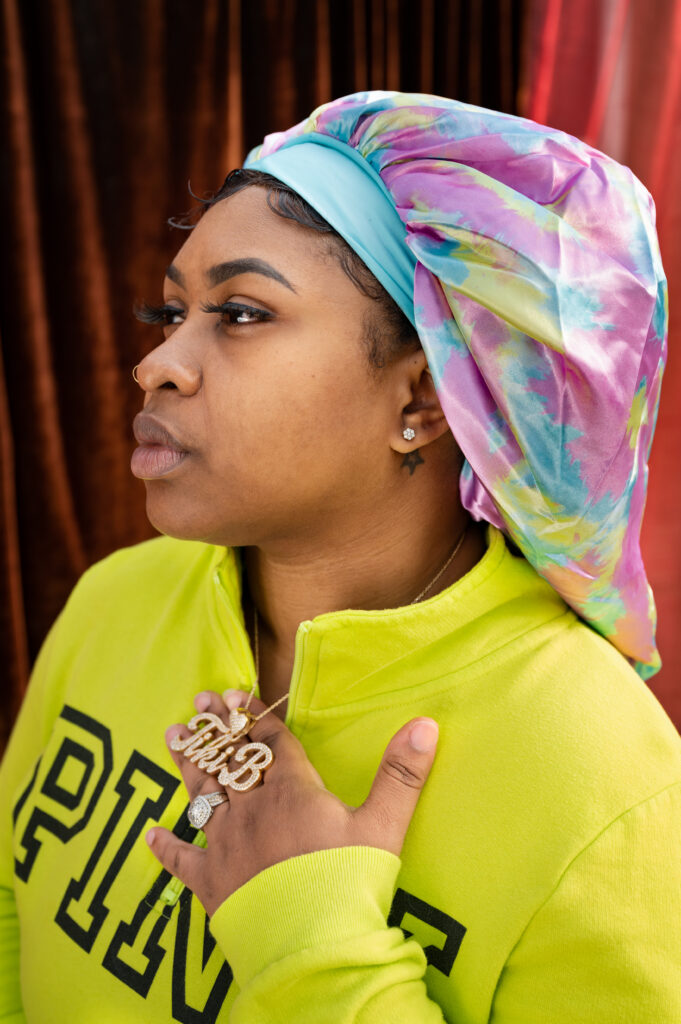Above: Marcus Musson in Austin
Every Saturday evening, my mother would sit my sister and I down in a high chair and spend close to an hour on each of us, styling our hair. Some Saturdays she’d let me stay up late with my older brother and watch a little bit of In Living Color, as she lovingly curled and twisted my locks. The rolling credits and the finishing touch of the stocking cap on our heads always signaled that my mother’s masterpiece was complete and secure.
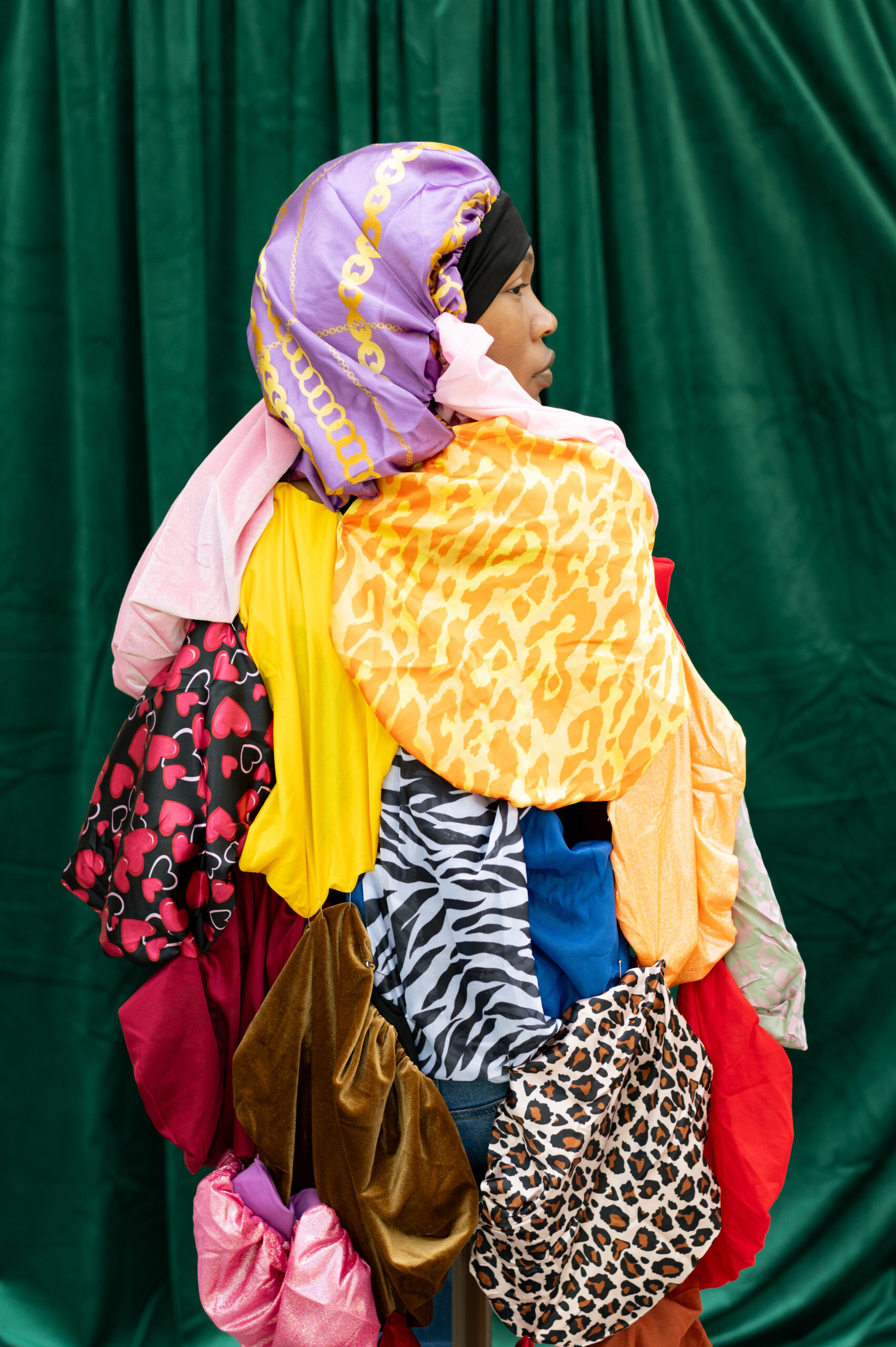
Due to the fragile nature of our uniquely textured hair, Black men and women wear silk and satin to shield it from breakage and environmental damage while sleeping or outside the home. The latter is something society often judges us for.
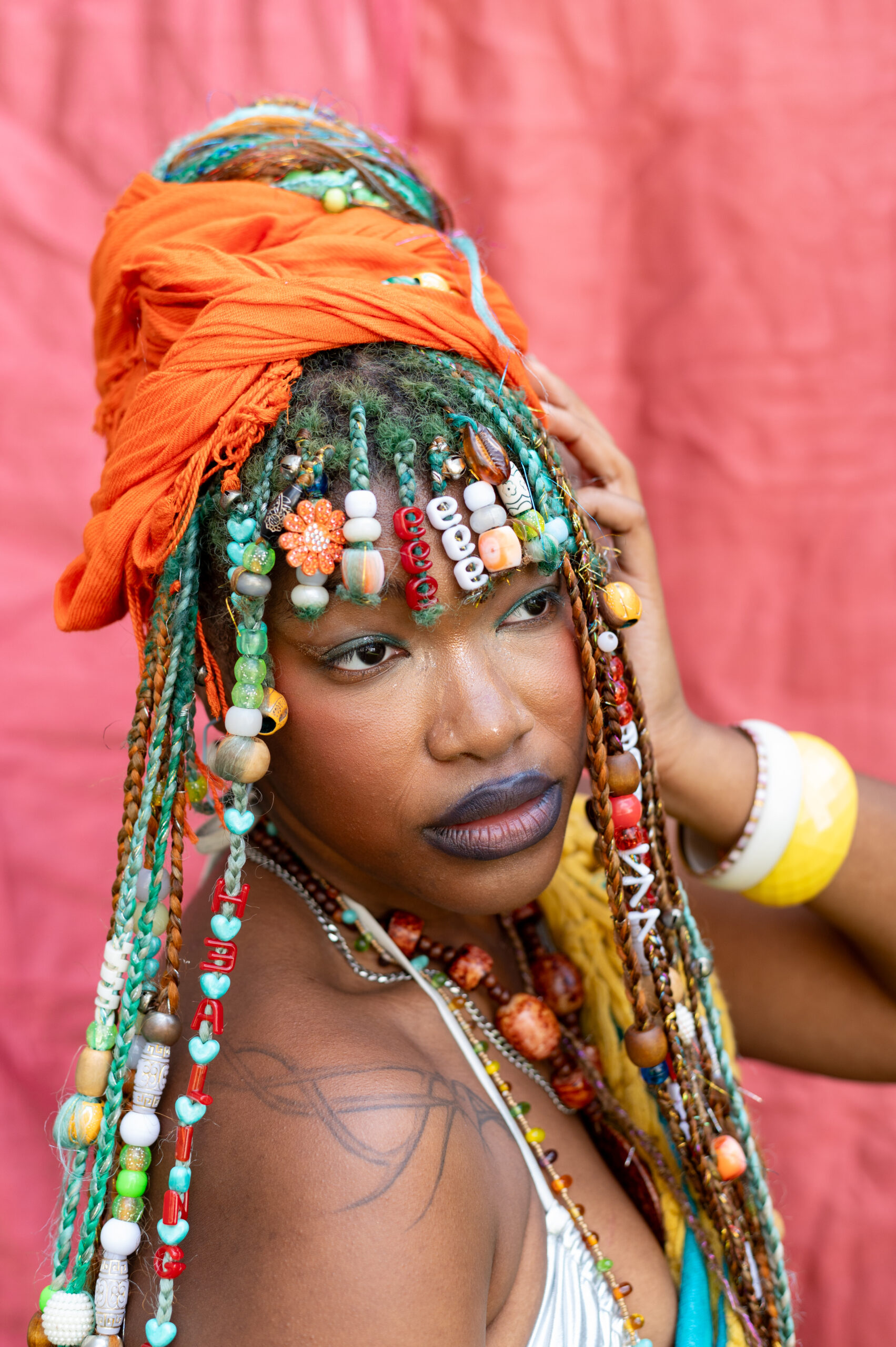
A few years back, comedian Mo’Nique went viral after posting a video admonishing Black women who wear bonnets and scarves on their heads outside of the home. “When did we lose pride in ourselves?” she asked. These words echo a long history of policing Black women’s bodies and the Black struggle for freedom of expression, even as our fashions and trends are celebrated when appropriated by white models and influencers.
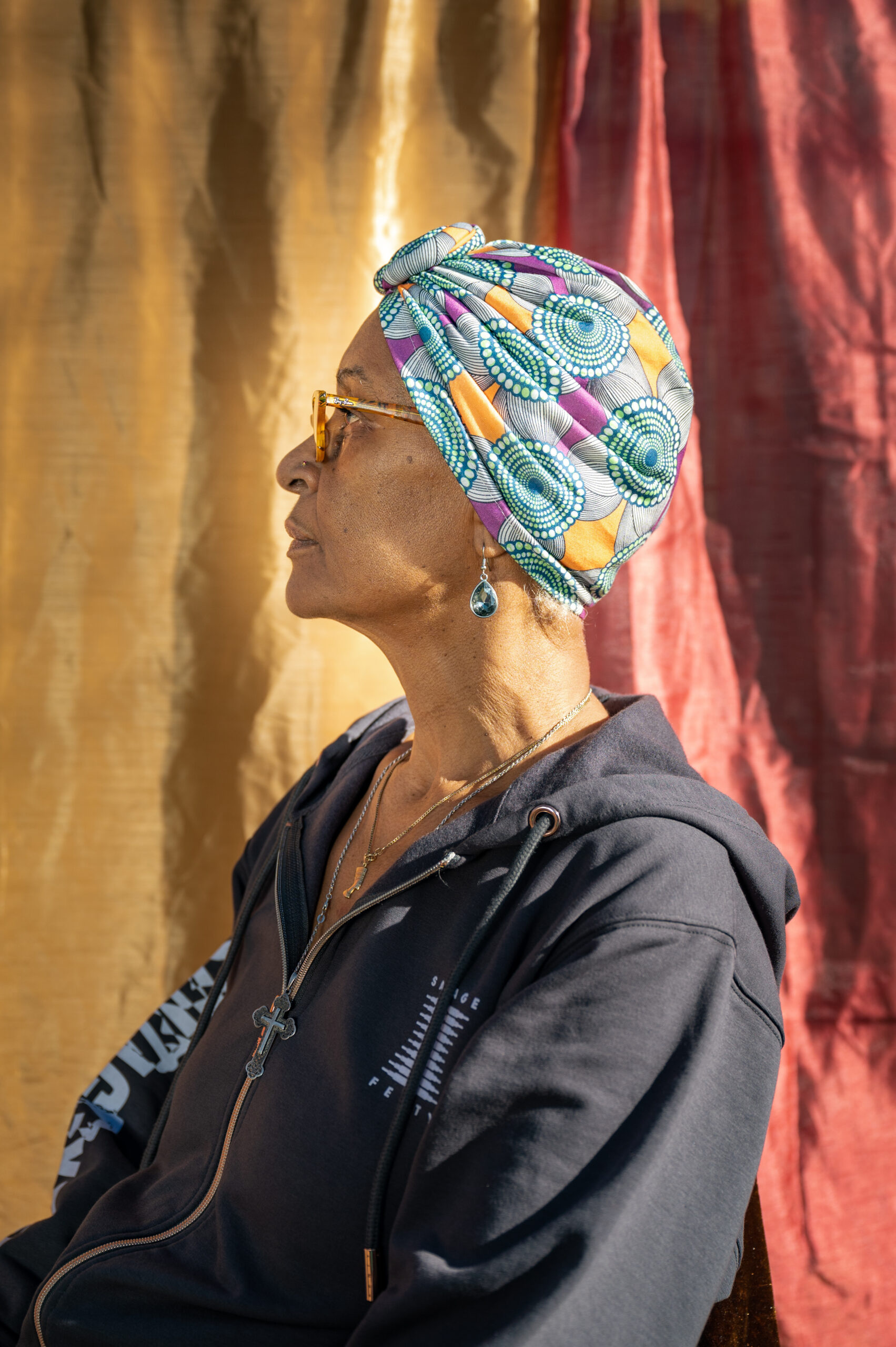
The act of wrapping my hair has come to represent a form of labor, care, and nurturing. When I choose to cover my hair, I am choosing to honor my hair. And yes, sometimes I do it in public. For these reasons, I found Monique’s comments extremely frustrating and harmful.
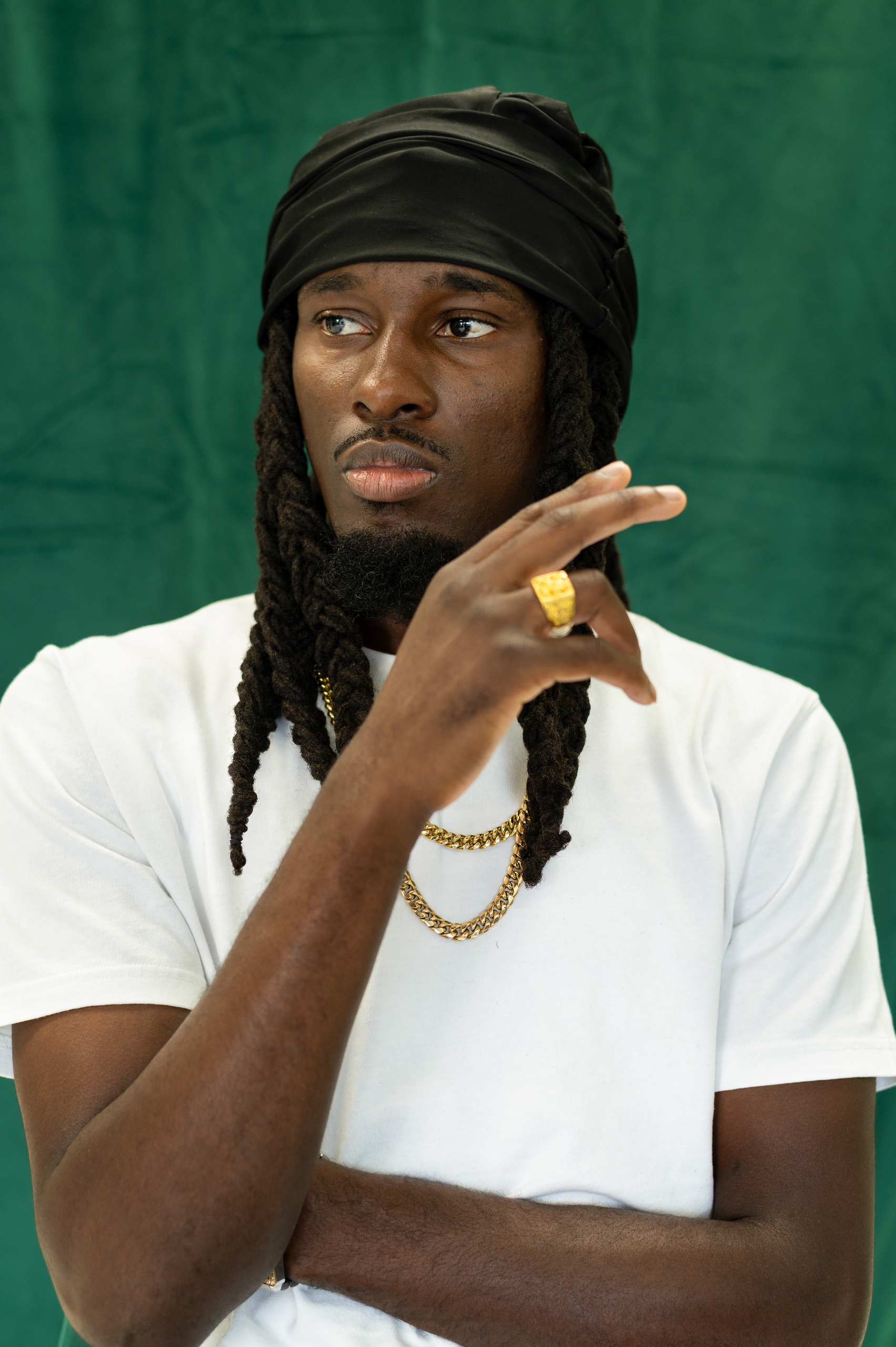
But not only are bonnets, scarves, and durags a necessity for protecting our tresses, they are also forms of creative expression, incorporating a vast palate of colors, imagery, and patterns.
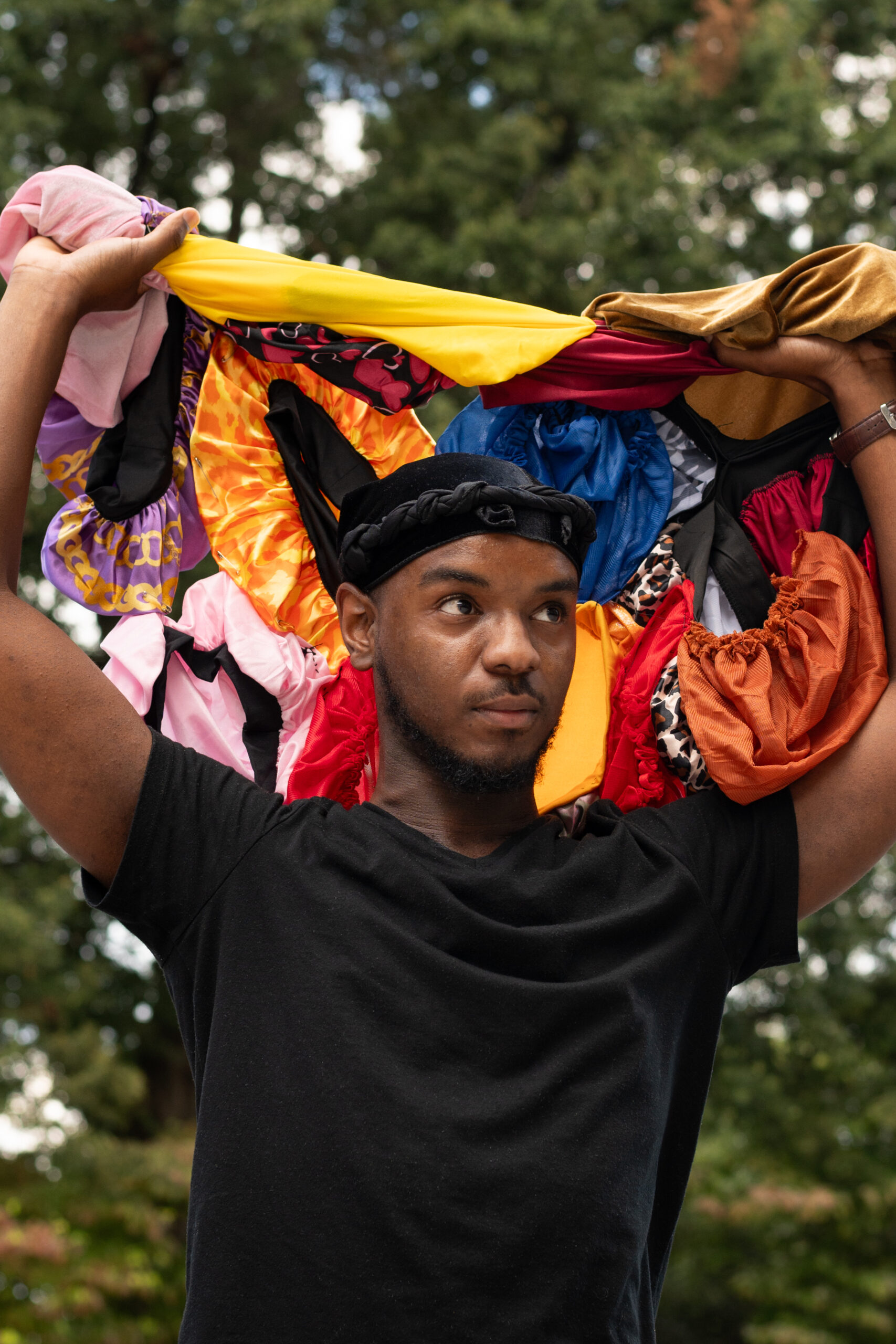
Mulling this over, I was stuck with the question that spawned this project: “What if we lived in a world where we were free to protect our hair and take pride in how we do it?”
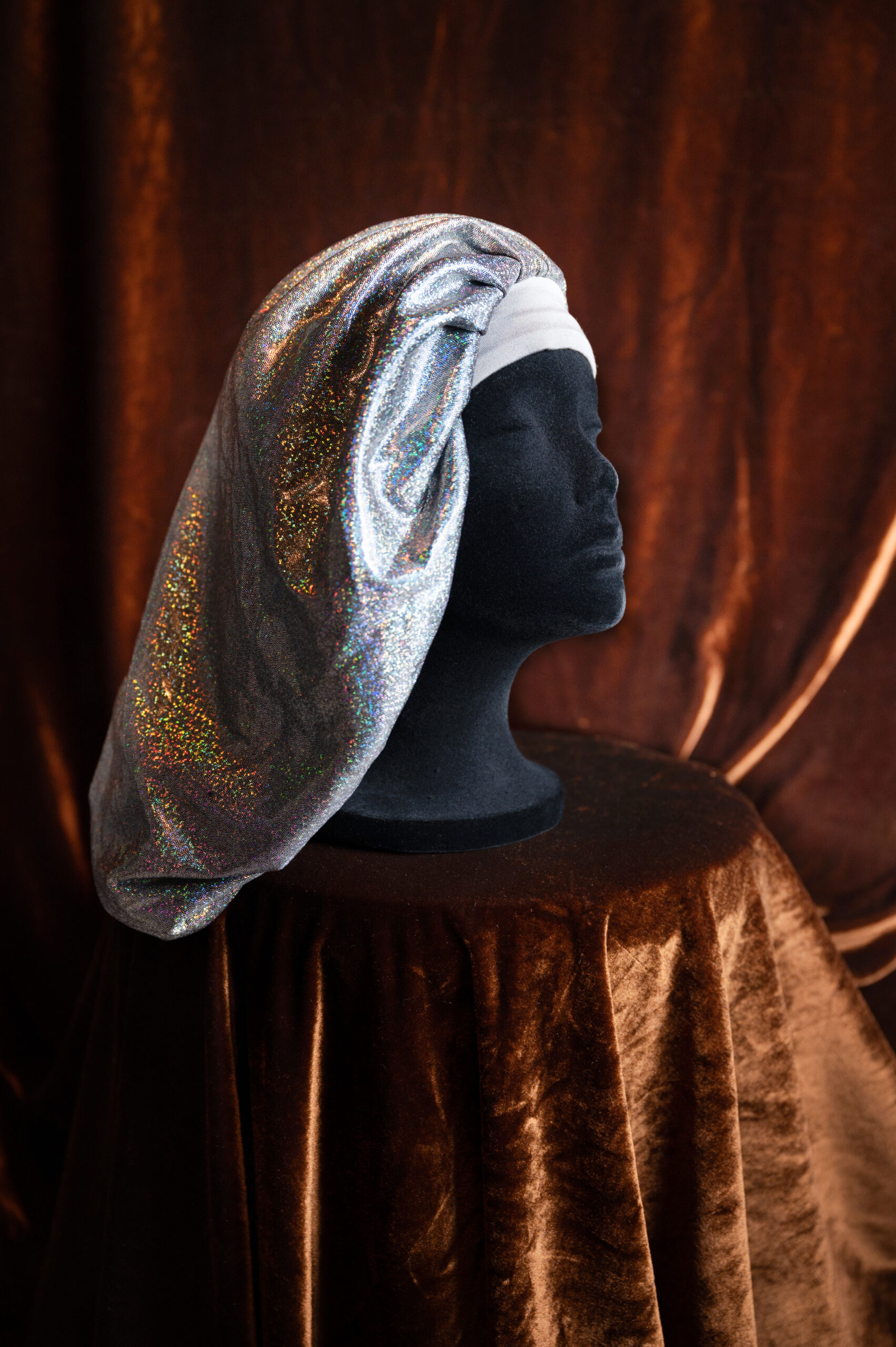
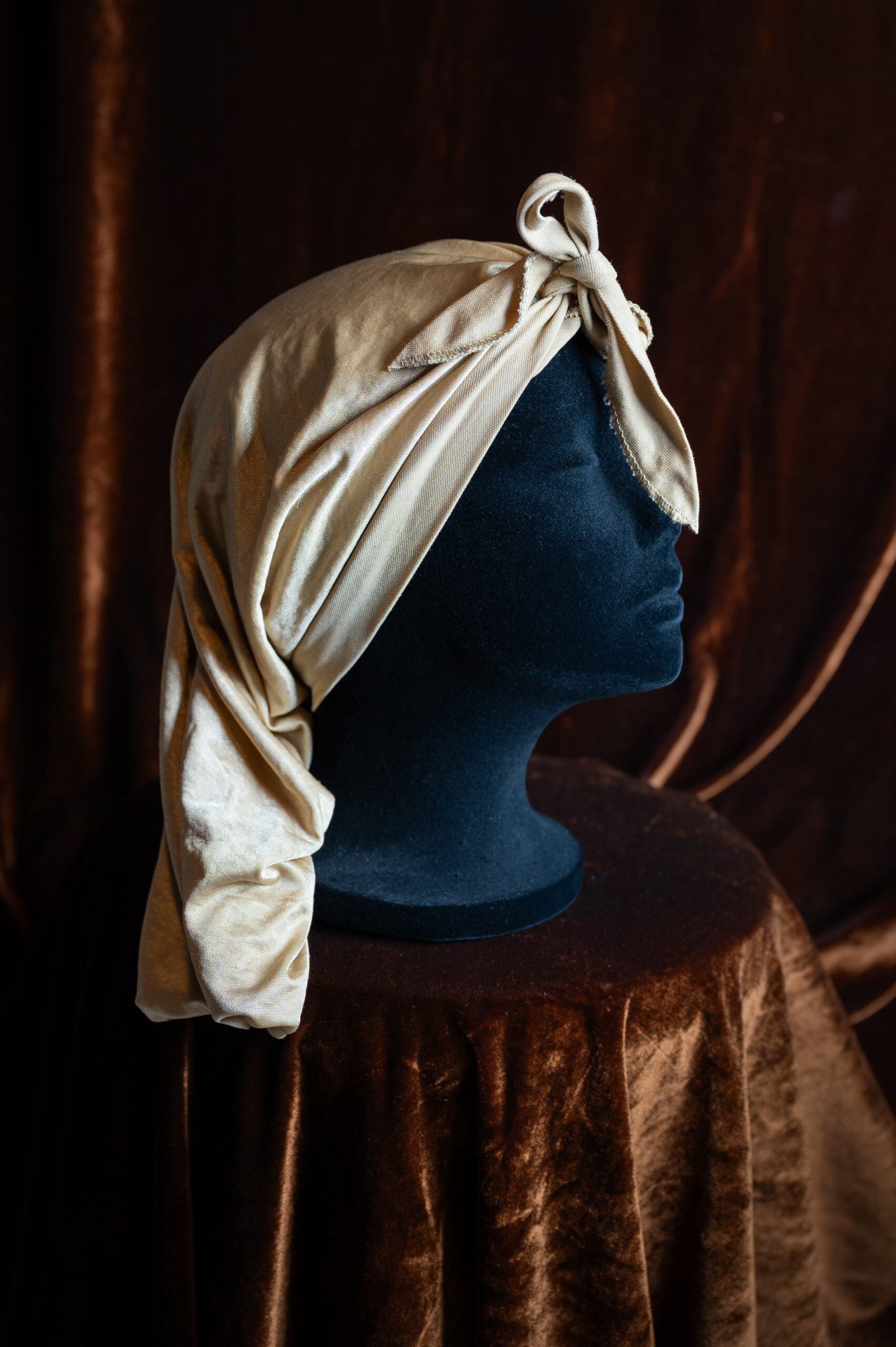
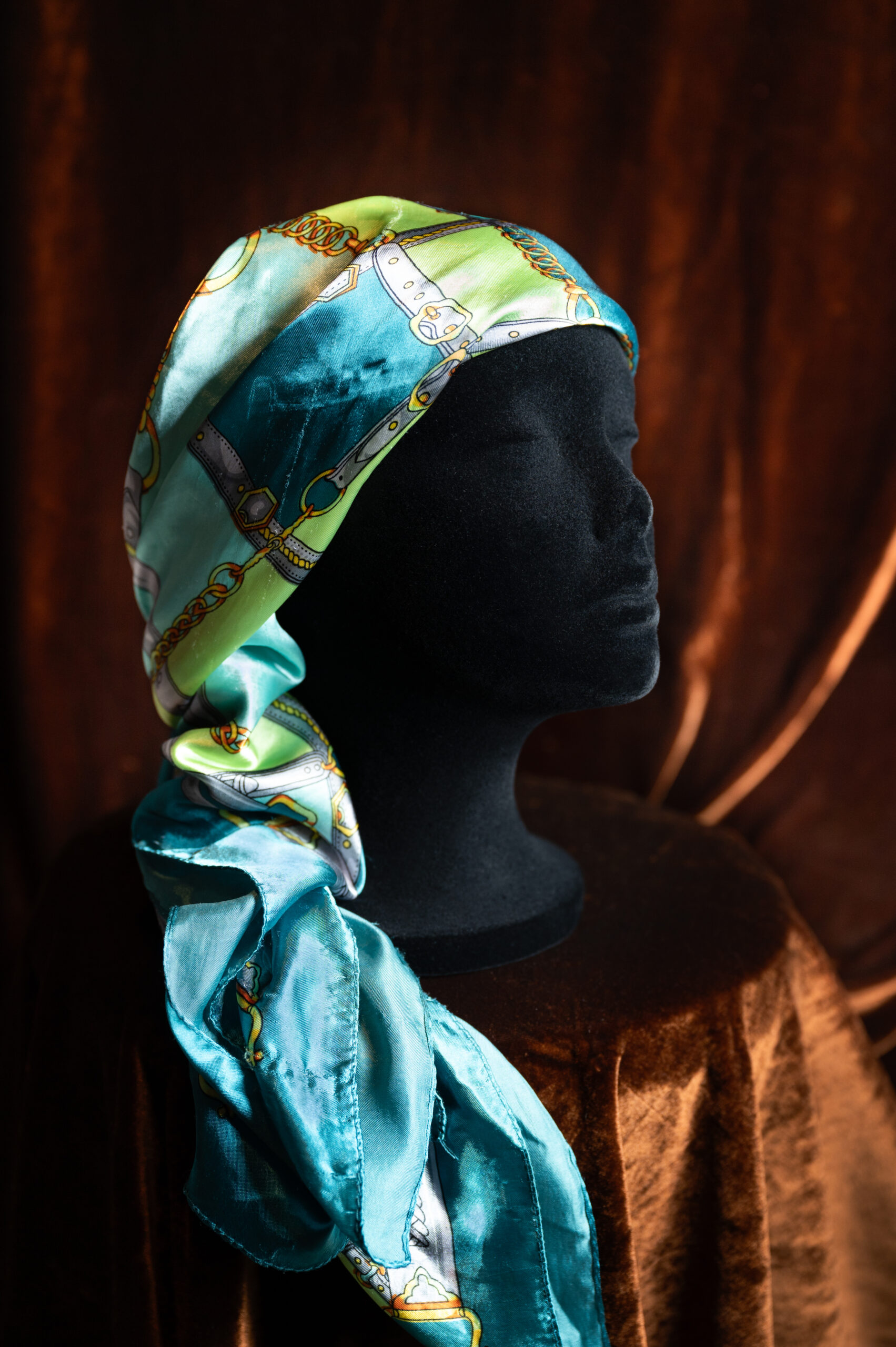
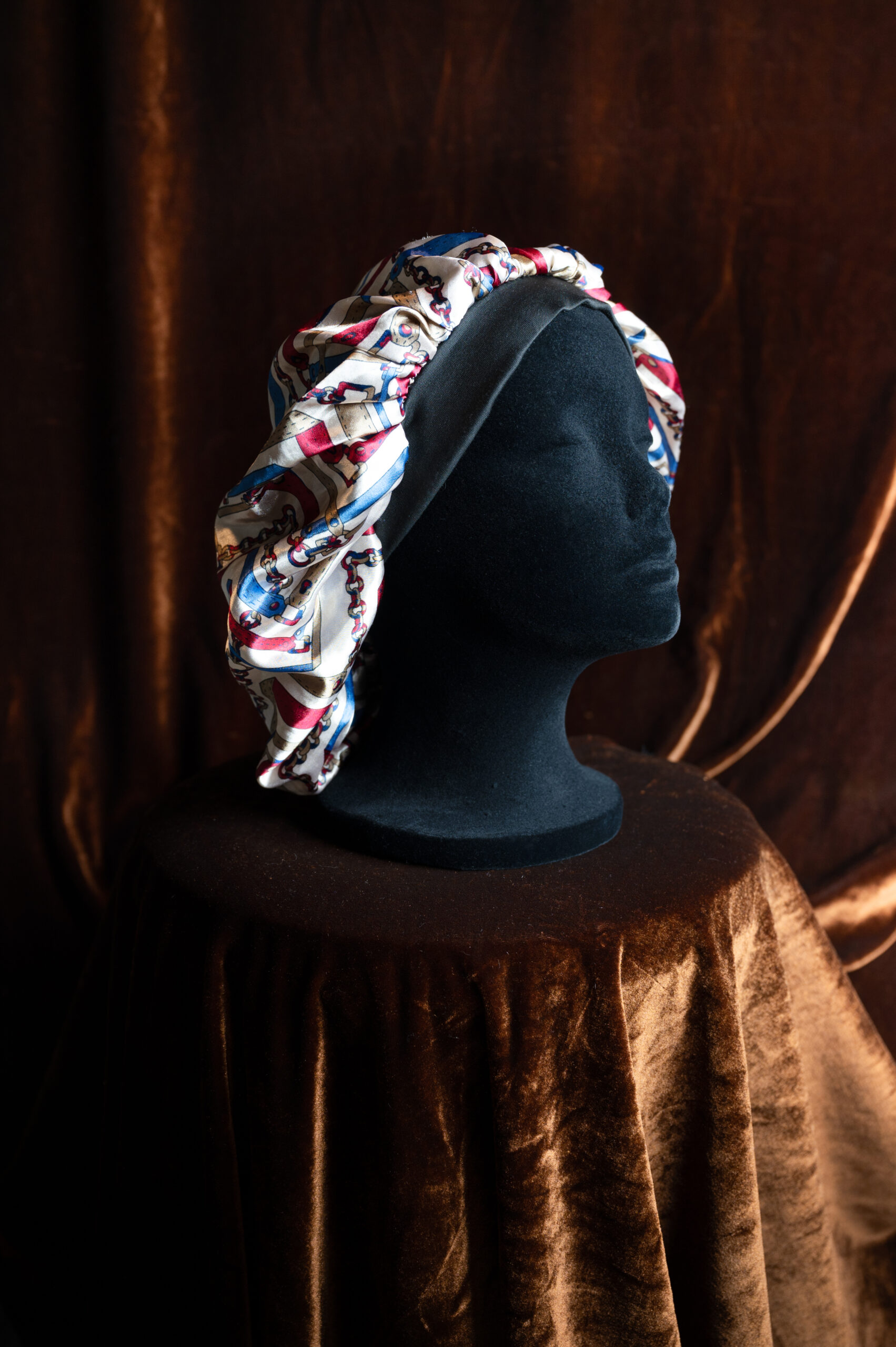
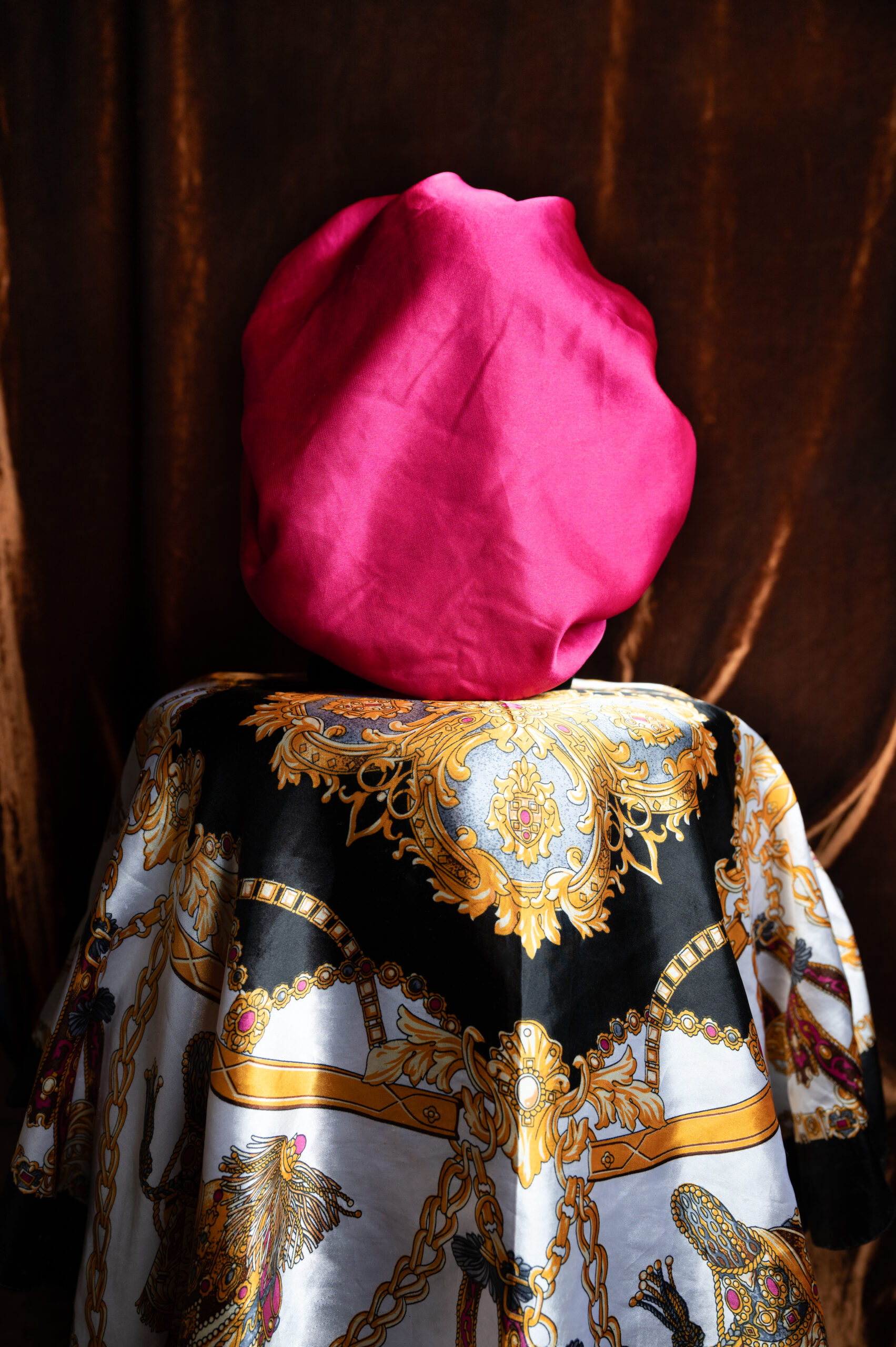
Earlier this year, I began my portrait series “Protect and Serve,” documenting the ways Black people “protect” our hair while “serving” looks. It is my hope that this series highlights this unique creativity and is the beginning of a body of work dedicated to reclaiming and embracing pride in the way Black communities care for our hair in both practical and fashionable ways.
